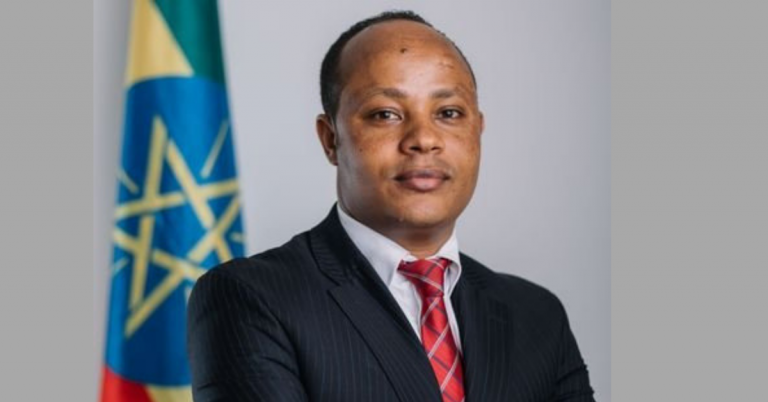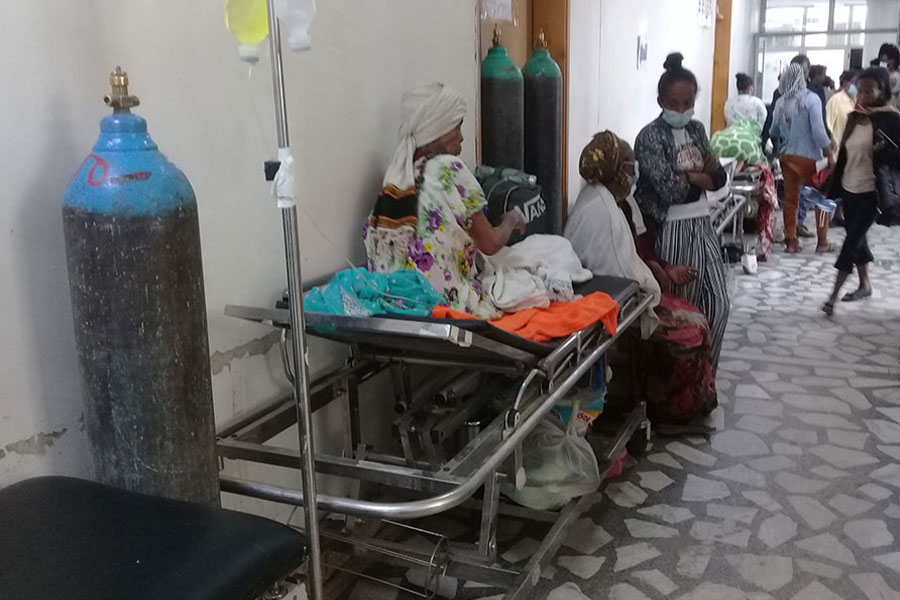
Feb 16 , 2019
By BERHANE HAILEMARIAM ( FORTUNE STAFF WRITER )
The Ministry of Health issued several directives last week dealing with the working conditions of health workers, allowing staff to transfer between regional states and multi-licensing in the medical field.
The directives also decentralise the assignment of health workers. It also allows graduated medical students to invoke and finalise contract termination from medical services at their respective regional states, if they can pay the full 457,000 Br of their tuition.
Medical staff workers other than doctors have similarly been included in the scheme, which apportions the number of years of required medical service based on the remoteness of the assignments to cities and towns. The minimum number of service is two years.
Health professionals commended the effort to relax the service terms, especially on the issue of multi-licensing, which enables health workers to acquire more than one permit to practice in more than one specialty in the medical field.
“I can now get an additional license for my degree in public health,” says Emebet Hailemariam, a nurse for almost three decades and currently employed at Gandhi Memorial Hospital.
Health professionals, working in fields such as nursing, health officer, midwifery, environmental health, dental surgeon, physiotherapist, psychiatrist nurse and optometrist, have been relieved by the Ministry from the mandatory medical service.
For the remaining five professions - medical doctor, laboratory technician, pharmacist, X-ray technician and anesthetist - the service remains in effect unless tuition fees are paid.
This applies to medical doctors that graduated from private universities as well, who are mandated to serve for two years or pay back 179,000 Br that covers their one-year paid internship in government hospitals.
But medical school graduates can now choose where to serve and be accepted according to the requirements and availability of budget by regional governments.
Under the previous process of allotments that started in 2008, health workers that abandoned their service have now been pardoned by the Ministry.
“Beginning this year, abandoning service will not be forgiven,” says Habtamu Demissie, director of human resources at the Ministry.
Ethiopia has 10 health workers for every 10,000 people, which according to the World Health Organisation is 60pc of the global standard. Enrollment for specialty professions has tripled to 1,000 and is offered in 12 universities across the country, while the number of graduating medical doctors has reached 3,000 a year. There are currently 37 universities offering medical courses in Ethiopia.
Tegbar Yigzaw (PhD), technical director at Jhpiego, an international non-profit health organisation, who has more than 17 years of service in the health sector, argued that the relaxation measures will not affect the sector.
He says that the medical industry has three bottlenecks: low health worker population, lack of periodic studies for determining a budget for health centres and limited resources allocated to the sector.
"Relaxing the procedure of health professionals' allocation will not matter that much," said Tegbar.
"The challenge is that there are few adequate pieces of equipment and health centres to meet the demand and employ the professionals."
The Ministry is currently undertaking a study on benefit packages for staff that give medical services, with a view of making them uniform.
PUBLISHED ON
Feb 16,2019 [ VOL
19 , NO
981]

Radar | Jun 26,2021

Fortune News | Jul 06,2019

Verbatim | Apr 30,2022

Radar | Oct 23,2021

Fortune News | Dec 26,2020

Fortune News | Jan 19,2024

Viewpoints | Sep 24,2022

Commentaries | Sep 06,2025

Fortune News | Oct 09,2021

Viewpoints | Oct 24,2020

Dec 22 , 2024 . By TIZITA SHEWAFERAW
Charged with transforming colossal state-owned enterprises into modern and competitiv...

Aug 18 , 2024 . By AKSAH ITALO
Although predictable Yonas Zerihun's job in the ride-hailing service is not immune to...

Jul 28 , 2024 . By TIZITA SHEWAFERAW
Unhabitual, perhaps too many, Samuel Gebreyohannes, 38, used to occasionally enjoy a couple of beers at breakfast. However, he recently swit...

Jul 13 , 2024 . By AKSAH ITALO
Investors who rely on tractors, trucks, and field vehicles for commuting, transporting commodities, and f...

Oct 11 , 2025
Ladislas Farago, a roving Associated Press (AP) correspondent, arrived in Ethiopia in...

Oct 4 , 2025
Eyob Tekalegn (PhD) had been in the Governor's chair for only weeks when, on Septembe...

Sep 27 , 2025
Four years into an experiment with “shock therapy” in education, the national moo...

Sep 20 , 2025
Getachew Reda's return to the national stage was always going to stir attention. Once...